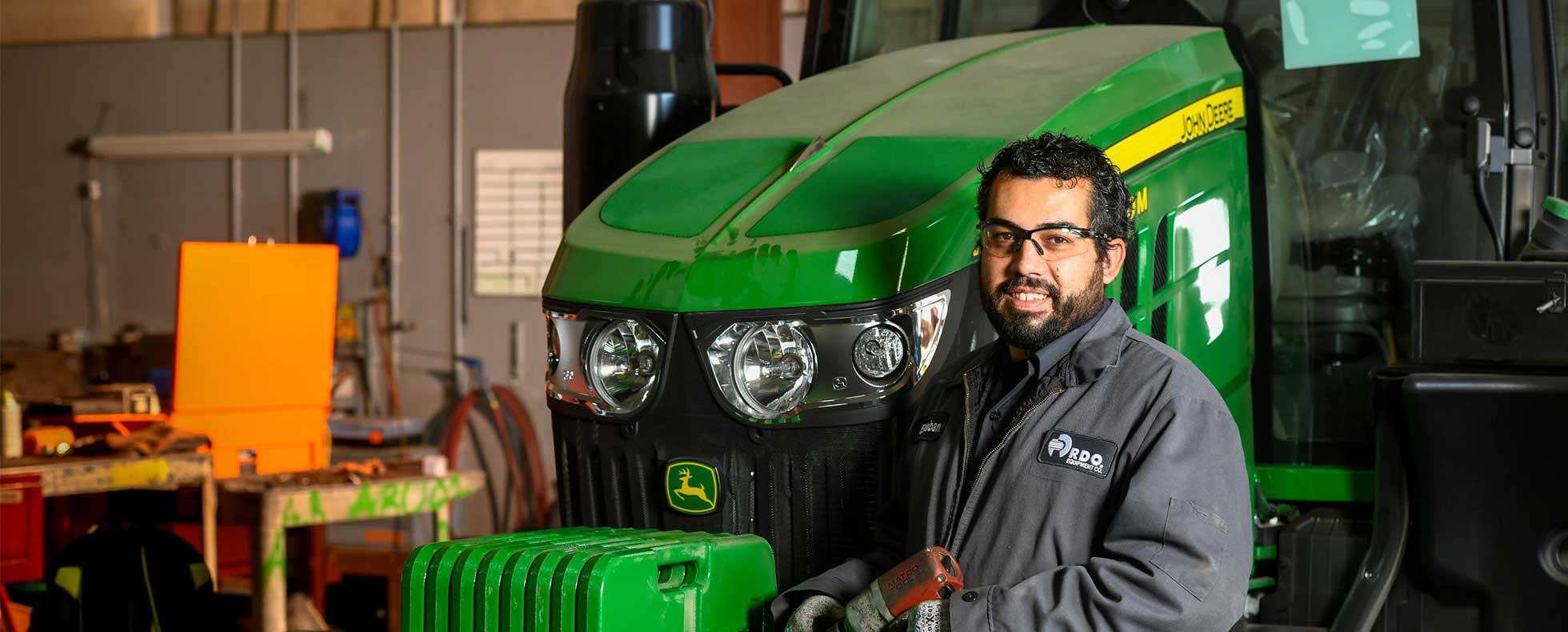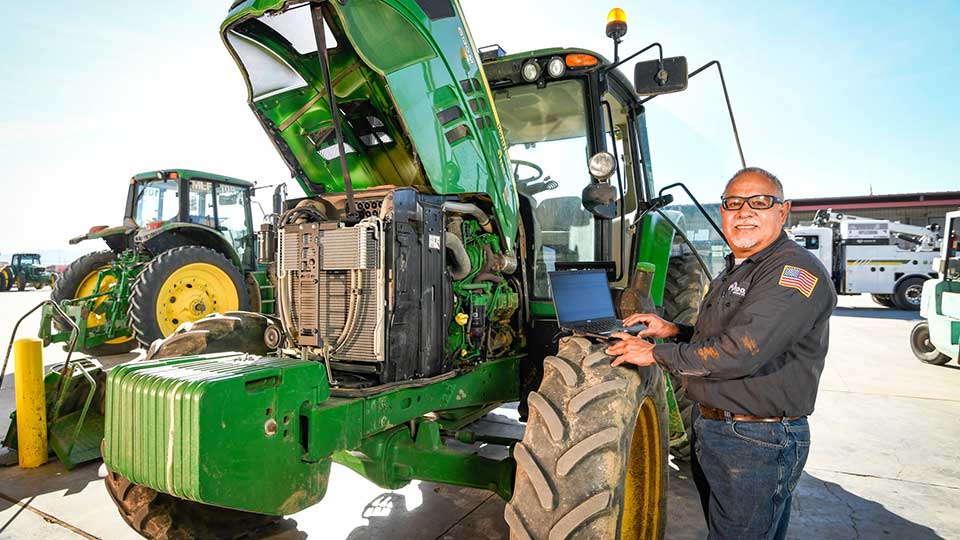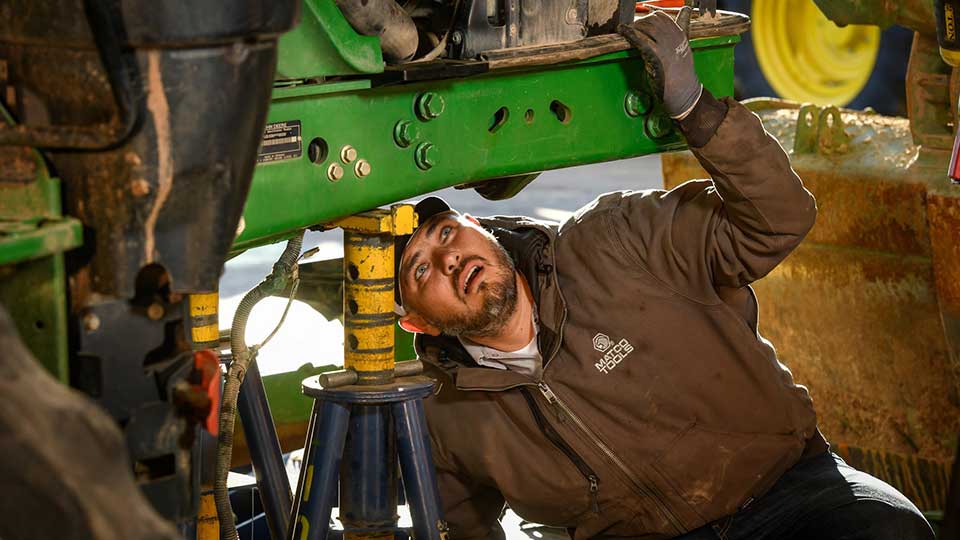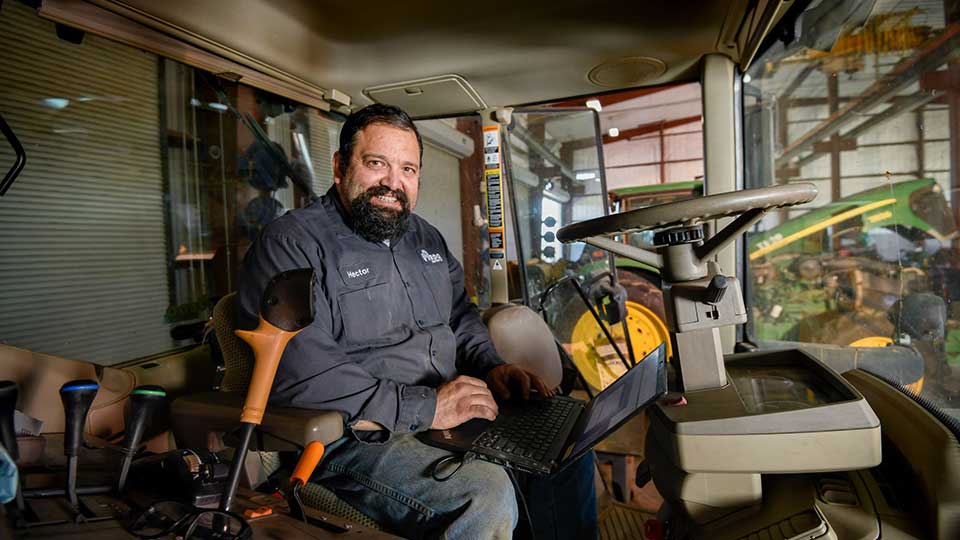
No one knows what their future holds, especially when it comes to their career. All anyone can do is put their best foot forward every day and strive to do a little bit better than the day before.
Over time, careers change. Every job you have is a learning experience and an opportunity to build skills. These skills set you up for continued growth and even more opportunities.
As a diesel technician, your career can change just like any other. In fact, you probably have more options than you even realize.
RDO Equipment Co. employs more than 1,000 full-time service technicians in the U.S.
Over the years (since 1968), many of these technicians have been successful in our service department before transitioning into another part of our business.
If you’re interested in a career outside your company’s service department (whether you work at RDO or not), this article provides eight tips for making this transition.
This is important as you search for your next role beyond the service environment.
Depending on your employer, there are probably quite a few options for you. Some of them may not even be on your radar at first.
Maybe there’s a job in machine monitoring, but you’d have to move cities, or perhaps it’s a role on your company’s parts team, which you’ve never considered before.
Whatever the case, keep an open mind as you search for these transitional opportunities. If you don’t feel an opportunity is a perfect fit, try to find out more about it, and remember: just because it’s the job you’re doing now doesn’t mean you’ll be doing it forever. There may not be the “perfect” job right away, which means you might have to make a sacrifice or two — but not always.

Pay is a big factor in anyone’s job choice. As a diesel technician, you can make a lot of money, especially if you’ve been at it for years.
That said, to transition out of the shop and into a different business segment, you may have to sacrifice some pay. The new job you’re interested in might not pay quite as much. But if it can get you more work-life balance or if it’s easier on your body, it might be worth it to you.
It’s also important to note that when you shift the focus of your career, sometimes a pay cut is necessary, but it won’t last forever. As you progress in your new line of work, your pay will increase and more opportunities will present themselves.
Sign Up: Service Technician Monthly Newsletter
Become a more profitable, successful mechanic with insights and resources sent to your inbox every month.
You will have different job options depending on the type of company you work for (its complexity, size, etc.). It can be difficult to tell whether a job is right for you, especially if you’re not familiar with what that part of your business does.
That said, as a mechanic, you have transferable skills that work well for a variety of roles. At a trucking company, for example, a diesel technician may transition into a driver manager job or a position in the safety department.
At a heavy equipment dealer like RDO, positions in the warranty, technical support, customer support, parts or machine monitoring departments are great areas for a mechanic’s technical knowledge.
Regardless of the company you work for, learn more about its jobs to find your fit — some might even surprise you.

This kind of ties into tip three but is also widely applicable to your job search.
If you don’t know something, ask someone who does. A great example of how this may show up is when looking at one of your company’s job postings. Sometimes, job titles and descriptions can be confusing if you’re unfamiliar with the department and what it does.
In these cases, contact your manager, recruiting department or the hiring manager for more clarity on the role’s duties and what they’re looking for.
There are no dumb questions, so don’t hesitate to ask if something is on your mind.
This goes for during your interview too. Here are 12 questions to ask in your next interview.
Interpersonal communication skills are important in many careers, including those in the service department. If you’d like to shift into a customer-facing or office role, developing these skills further will set you up for success.
A lot of the work done in these environments is through face-to-face meetings and interactions. If you're not used to it, this can be kind of a weird transition. The more you can do to focus on these skills before applying for a new job, the better off you’ll be.

Diesel mechanics perform a lot of work independently — especially if they’re out in the field. Although this is true of some jobs outside of the service department, collaboration is central to many of the positions you might be interested in.
For this reason, creating some familiarity with working on a team and relying on others to get things done is a good idea.
Another set of skills you’ll likely need — particularly if you’d like to join a department that uses a lot of computers — is with technology. As the diesel mechanic trade becomes increasingly connected to technology, this will get easier and easier.
Find out what kind of productivity software you might be using in the position you’re interested in (this could be a good question to ask the hiring manager and/or it could be in the job description) and try to familiarize yourself.
Examples include Microsoft Office products like Word, PowerPoint and Excel. Don’t worry too much, though. There are plenty of tutorials online and people willing to help you learn this software.
This last tip is important as it can make this entire process smoother.
Your manager will be a good ally as you search for an opportunity outside of the shop environment.
If this is a goal you have, voice this during your one-on-one discussions. When you do, great managers will work alongside you to come up with a plan for making this happen.
Your manager can suggest what (if any) training/certifications/education you should consider getting to make your goals a reality.
By keeping an open mind, developing some skills (teamwork, technology, communication), asking plenty of questions and working alongside your manager, you’ll have no trouble making a transition out of a service department.
No matter what your goals are, your employer should help you get there.
Here are seven things to look for in your next employer.
RDO Equipment Co. has a culture of helping team members of all backgrounds control the direction of their careers. If you’d like to get the support you need to succeed at your highest potential with a stable employer that invests in you, check out our careers page for more information.
Also, all of our current openings can be found here.